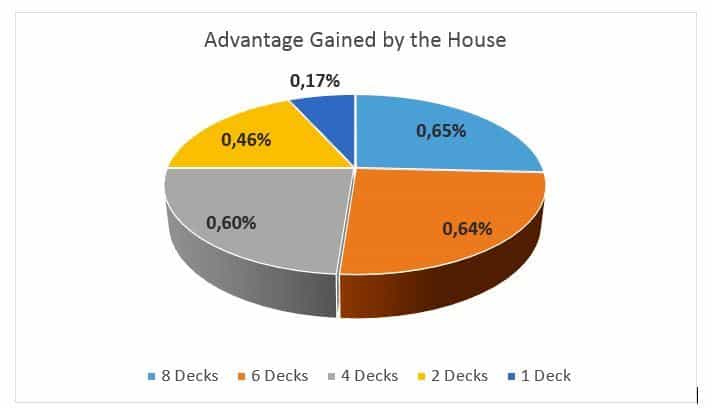Blackjack Expected Return
When the Wizard discusses games like video poker, he compares games using Expected Return. For example, a video poker game may have a return of 98.98% When the Wizard says a player's expected value for certain Blackjack rules is -0.51%, does the equate to a return of 99.49%? The time has come. EV has lots of names: expectation, long-run expectation, LRE, fair value or expected value. Most people tend call it EV these days. EV isn’t a concept unique to blackjack. Another theoretical number is the return percentage or pay out percentage. This is how much the blackjack player's get to keep of their own bets. Simply put, the return percentage is the percentage of the bet that would be returned to the players if every blackjack play decision were statistically correct.
Blackjack Expected Return
When the Wizard says a player's expected value for certain Blackjack rules is -0.51%, does the equate to a return of 99.49%?
Administrator
You can use EV calculations like this to work out all sorts of blackjack decisions. For example, what about when you have 12 and the dealer has a 3? Some people say to stand and some people say to hit. We can give you the answer, the people who say hit are right. Hitting the 12 has an EV of -23.3% and standing is -25.2%.
Usually you refer to expected return in machine games, and expected value in table games. It seems silly, but I'm just trying to be consistent with the way everybody else does it.Expected return = 1 + Expected value.
Usually you refer to expected return in machine games, and expected value in table games. It seems silly, but I'm just trying to be consistent with the way everybody else does it.
Basic Strategy Blackjack Odds
 Not presuming I know more than the Wizard about calculating odds, but I'm used to a different definition of 'return,' more in the classic business sense, like in 'investment return,' 'rate of return,' etc.
Not presuming I know more than the Wizard about calculating odds, but I'm used to a different definition of 'return,' more in the classic business sense, like in 'investment return,' 'rate of return,' etc.In that sense, wouldn't return be (Q1 - Q0) / Q0? E.g., I invested in MGM at $3 in Spring 09, cashed out at $8 that summer, a return of (8 - 3) / 3 = 167% (forgetting about annualization, time value, etc.).
 Or, if you walk in with $100 and walk out with $95, your 'return' is (95 - 100) / 100 = minus-5%.
Or, if you walk in with $100 and walk out with $95, your 'return' is (95 - 100) / 100 = minus-5%.Blackjack Expected Return Calculator
I guess statistical returns are a different animal than a financial return or something?
Expected return = 1 + Expected value.
Usually you refer to expected return in machine games, and expected value in table games. It seems silly, but I'm just trying to be consistent with the way everybody else does it.
Blackjack Strategy Odds

Blackjack Expected Value
It has to do with the 'N-to-1' vs. 'N-for-1' issue. Slot games payouts are universally N-for-1 - the lowest award on any paytable is 0, which is a loss, so 1 represents a push (e.g. Jacks or Better). The 'expected return' of a game, a.k.a. the payback percentage or the return-to-player (RTP) percentage, is the paytable times the probability distribution. That's going to be a number shy of 1.0, but can never be negative (since none of the pay values are negative).
Contrast with table game payouts. Those are usually N-to-1, so the lowest award on any paytable is -1 (a loss). When you take a table game paytable (even if it's just +1 and -1 for an even-money game like the passline) and multiply by the probability distribution, you get a number just shy of 0.0. So because the payout values are stated as -1 from how they'd be stated in slot games, so is the overall return percentage.